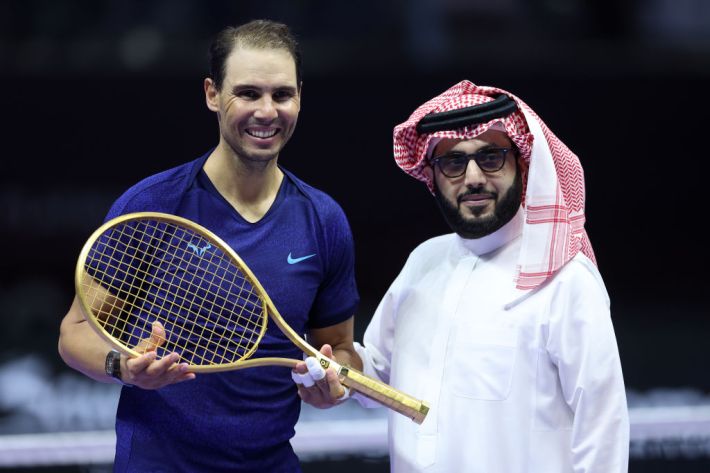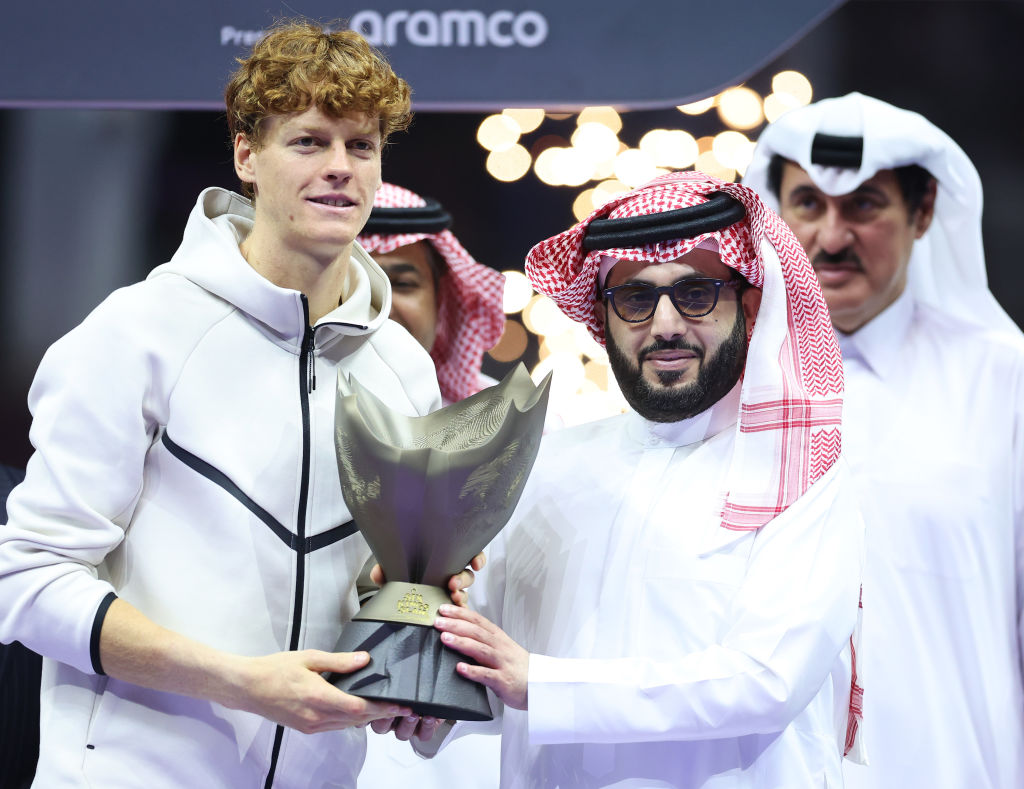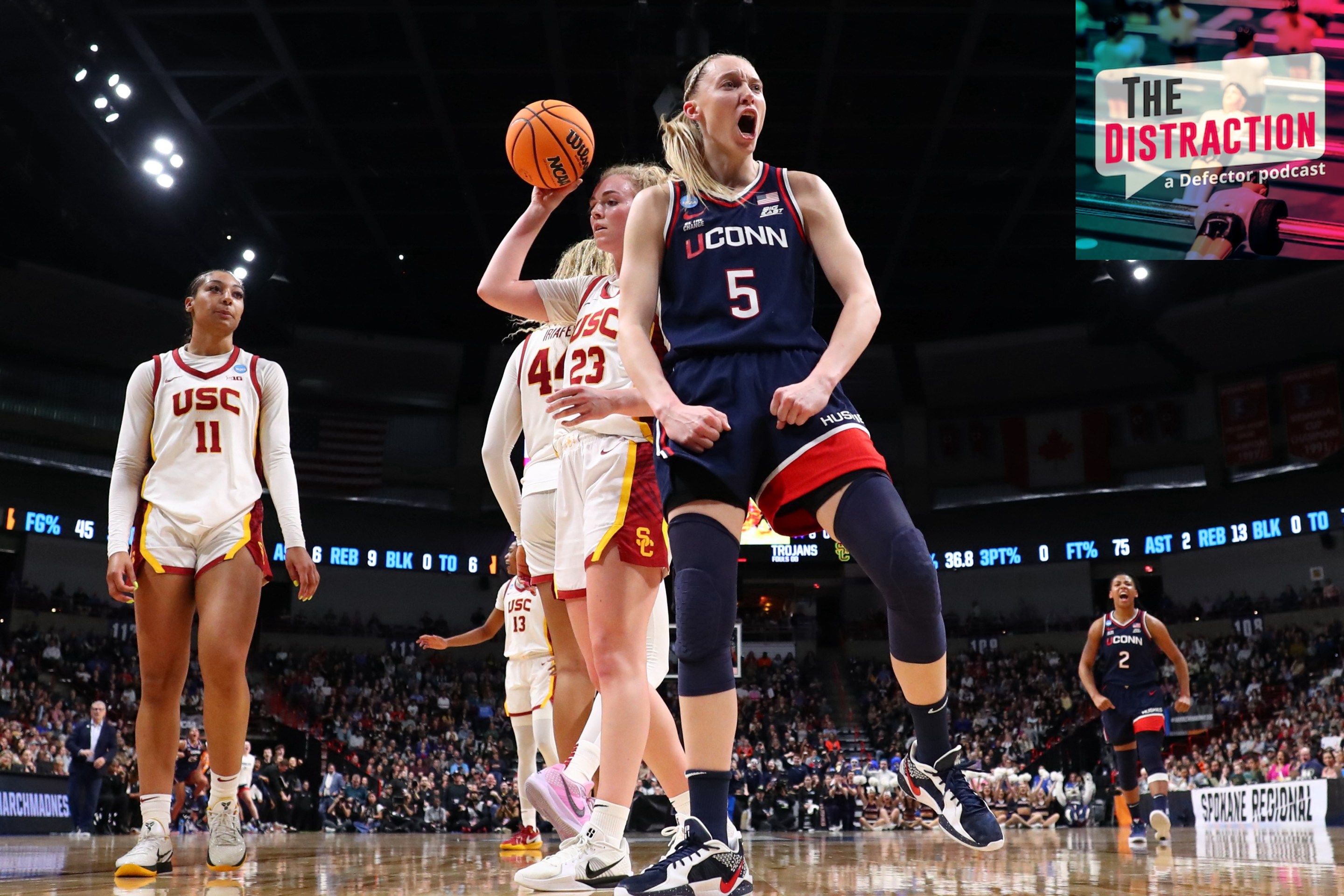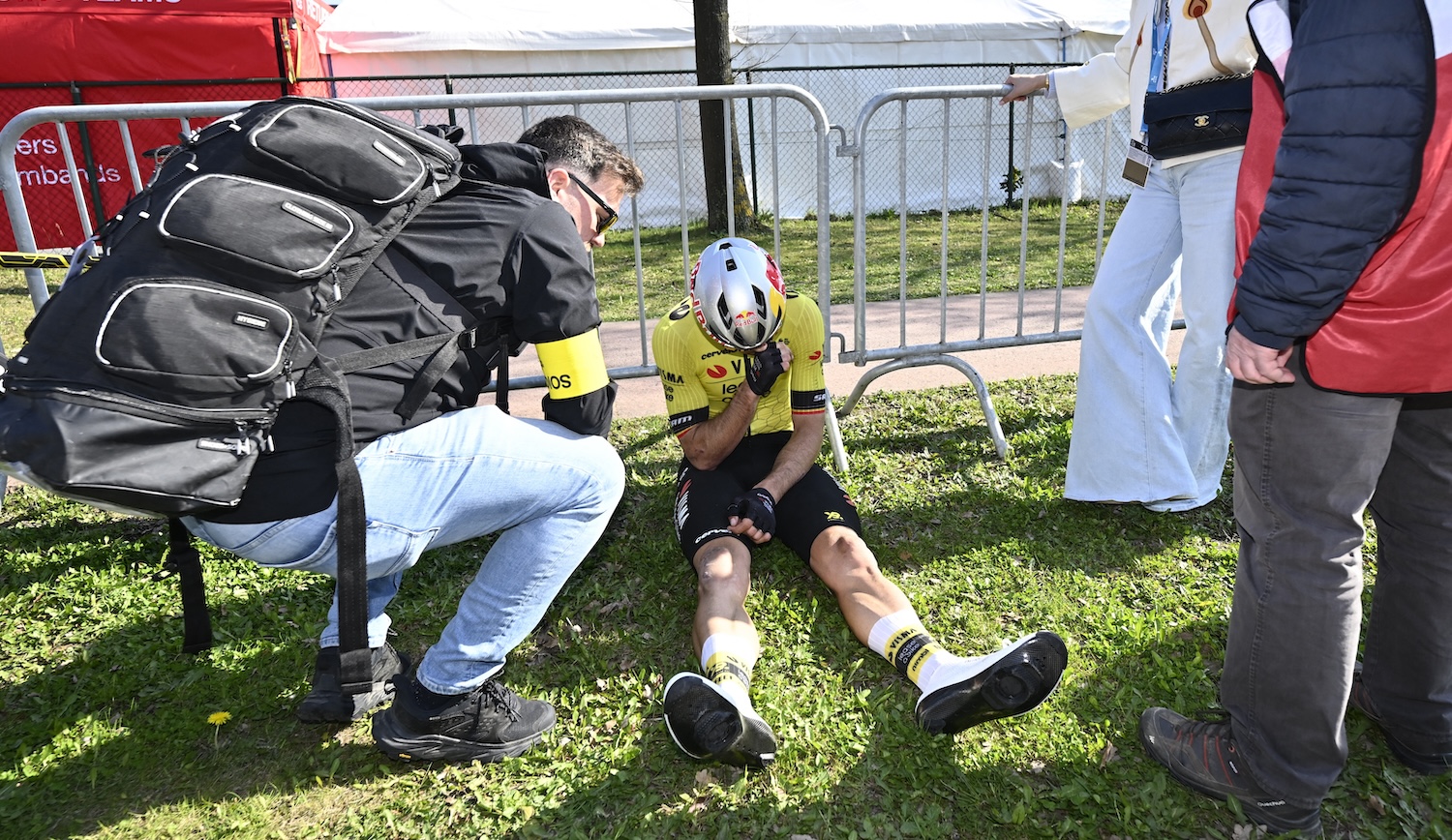I couldn’t even go a week without Turki Alalshikh, the chairman of Saudi Arabia’s General Entertainment Authority, popping up on my laptop during a live sporting event. On Oct. 12, he was in the front row for the undisputed light heavyweight championship fight between Artur Beterbiev and Dmitry Bivol, a long-awaited bout he was instrumental in putting together. (He was the third-most important character of the night, getting name-checked by the ring announcer and both fighters and promptly calling for a rematch when he disagreed with the judges’ scorecards.) Not seven days later, there Alalshikh was on the glowing rectangle again, front and center at the Six Kings Slam, an exhibition he spearheaded that featured five of the best and most famous male tennis players on the planet, and also Holger Rune.
Alalshikh’s place within a murderous, deeply discriminatory regime has not dissuaded boxing from working in lockstep with him, catching the money he throws in order to stage high-demand fights that would not have happened without the unlimited wealth at his disposal. But there was nothing high-demand about the Six Kings Slam. It was an exhibition event whose headlining matchups, like Carlos Alcaraz-Jannik Sinner, were ongoing rivalries that have grown without intervention from Alalshikh or anybody else. This event happened simply because it could, and because Saudi Arabia’s sportswashing efforts are now so ubiquitous, it felt immunized from any loud complaints.
Playing for higher purses than they ever had before, if not official results, most of the players competed at a high intensity. The world No. 1 Sinner won the event, rebounding from a first-set tiebreak loss to defeat Alcaraz in a typically psychedelic exchange of blurry pace. Novak Djokovic and Rafael Nadal contested a surprisingly close third-place match, in which Nadal lost but managed to produce a few highlights even as his geriatric shuffle towards retirement later this year nears completion. Daniil Medvedev and his wonky shoulder won just three games over Sinner, but he took home $1.5 million regardless. Rune earned the same amount after failing to win a single point against Alcaraz’s first serve in a straightforward loss. Everybody seemed to have fun. Alalshikh presented Nadal with a gold racket following his match with Djokovic, which sparked eager speculation over whether it was really made of precious metal. Naturally, it was.

The commentary was alarming. Robbie Koenig—a popular voice who calls tennis matches like they’re action movies—did the broadcast alongside Kevin Skinner, who calls them like they’re tutoring sessions. Both men earned their money. Like boxing broadcasters of late, they repeatedly called Alalshikh “His Excellency,” painting him as a generous dude who just likes funding entertainment. (Alalshikh, aside from acting as sportswasher-in-chief, allegedly played a nasty personal role in Mohammed bin Salman’s coup.) They talked about Saudi Arabia as a hot new tourist destination. They legitimized each match, avoiding the admission that Nadal was washed in the hopes of generating some false suspense over whether he could beat Djokovic. Koenig recycled his trademark soundbites after the more entertaining points. This is no different from any other tennis event, the message seemed to be, except the hosts of this one are really awesome.
I’ll admit that I didn’t think this would happen so fast. Tennis is nothing like boxing. Its platonic ideal is not blood and guts but Roger Federer prancing atop a manicured lawn, carving a mathematically perfect arc in the air with his racket as his one-handed backhand guides the ball into the corner. There’s an upright orderliness that’s threaded through the sport’s retellings of its own history and its present-day behavioral codes—players are media-trained so thoroughly that the first words out of their mouth after a match are often “credit to my opponent” regardless of the question they were asked. And while boxing is a shitstorm of misogyny, tennis actually has a pretty good record of gender equality, offering equal pay at the majors thanks in large part to the efforts of Billie Jean King and later Venus Williams. Tennis has tournaments in other countries with problematic stances on human rights, but to me, taking money directly from the Saudi Arabian government figured to be a bridge too far.
But there is no meaningful conflict in tennis’s new relationship with Saudi Arabia, because the sport has already launched itself into the billion-thread-count sheets. The WTA Finals will be held in Riyadh in a week and a half—and in 2025 and 2026 too. The PIF sponsors both the ATP and WTA ranking. On the latter’s website, the PIF logo sits comically close to the logo for the tour’s main sponsor: a health tech company focused primarily on women. The deals are done, the principles sacrificed. Tennis’s soul was always for sale.
Every sports figure seems to say the same thing when initially getting involved with Saudi Arabia: Yes, the human rights conditions are not ideal, but change can only happen through involvement, and they are trying to get better. But that is a claim, not a fact. 2024 saw the Saudi government turn to capital punishment more than it had in decades, executing nearly 200 people as of September. “Despite repeated promises to limit the use of the death penalty, Saudi authorities have ramped up executions while routinely failing to abide by international fair trial standards and safeguards for defendants,” Amnesty International’s report said.
Perhaps that report escaped the eyes of Nadal, who has made nine figures in tennis prize money during his career, yet took another huge payday to become a Saudi Tennis Ambassador. But over time, athletes’ vapid responses to the criticism inevitably fall away, and “His Excellency” becomes the new normal. If a meaningless exhibition like the Six Kings Slam was so successful in diverting tennis’s attention from the questions that matter, the legitimately important matches at the WTA Finals might kill them off altogether.






